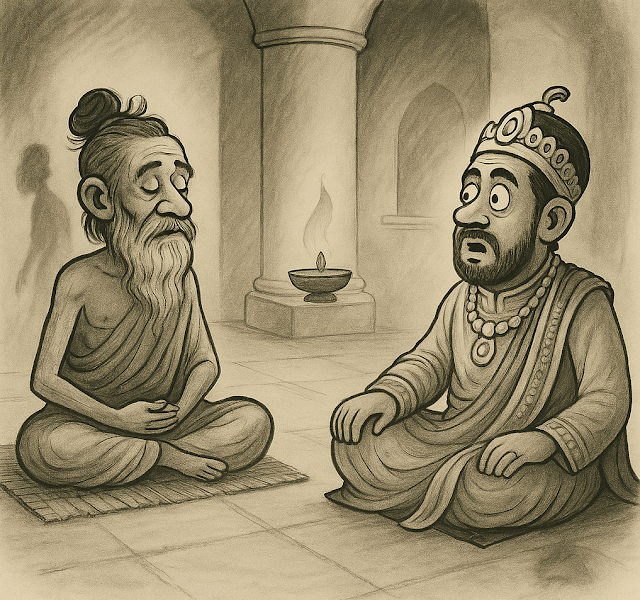The Silent Witness
Amidst the peaceful hills of ancient Mithila, King Janaka—famous for his intelligence and detachment—welcomed the sage Ashtavakra to his palace so that he could speak about the nature of reality.
Ashtavakra, twisted in eight places but aflame with the fire of wisdom, arrived not amidst fanfare, but silence. King Janaka bowed down and said,
"O Sage, the seers talk of illusion and truth. Tell me—what is really real?"
Ashtavakra gazed at him, smiled faintly, and said, "What you see, O King, is true—provided you are present to see it. The instant the seer disappears, what truth remains in the world?"
Janaka frowned. “But I see this palace, my people, my own hands—surely they are real?”
Ashtavakra gestured to a nearby flame. “Observe this lamp. When your eyes are open, it dances. Close your eyes—it vanishes. Does it still exist in your absence, or does it live only in the light of your awareness?”
That night, Janaka dreamed vividly—his kingdom under siege, his palace in ruins. He ran, barefoot and wounded, begging for food. And just as he was about to die in the dream—he woke up, gasping in his silken bed.
He rushed to Ashtavakra at dawn. “Which is true, O Sage? The king in the bed, or the beggar in the dream?”
Ashtavakra replied calmly, “Both were observed. Neither endures. What remains when the observer is gone—that is the truth beyond truth.”
From that day, Janaka ruled not with attachment, but as a silent witness. His joy no longer depended on what he saw—but on what remained when all seeing ceased.
Moral:
Reality is shaped by the one who observes it. The deeper truth begins when the observer dissolves.
Inspiration:
The observed is true as long as there is an observer. - Astavakra Muni

